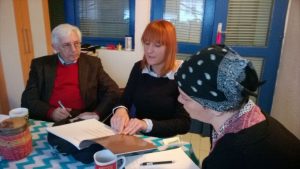The harms being caused by the war on drugs can no longer be ignored. It is time to leave behind harmful politics, ideology, and prejudice. It is time to prioritize the health and welfare of the affected populations, their families, and communities.
Support. Don’t Punish is a global advocacy campaign calling for better drug policies that prioritize public health and human rights. The campaign aims to promote drug policy reform and to change laws and policies which impede access to harm reduction interventions.
The Support. Don’t Punish campaign aligns with the following key messages:
The drug control system is broken and in need of reform
People who use drugs should no longer be criminalized
People involved in the drug trade at low levels, especially those involved for reasons of subsistence or coercion, should not face harsh or disproportionate punishments
The death penalty should never be imposed for drug offenses
Drug policy in the next decade should focus on health and harm reduction
By 2020, 10% of global resources expended on drug policies should be invested in public health and harm reduction
To launch the Global Day of Action for the “Support. Don’t Punish” campaign in South East Europe, DPNSEE organizes “Kick-off event”. The event will be held in the EU Info Centre in Belgrade, Kralja Milana 7, on 20 of June 2017 at 13:00.
Representatives of the Network will present the objectives of the campaign “Do not Punish Support” as well as activities within the project “Strengthening the capacity of civil society organizations in South-East Europe and promoting public health and human rights oriented drug policy in South East Europe ” supported by the European Commission. The network has prepared a Glossary of terms used in areas related to drug policy and related topics that will also be presented.
The representative of the EU Delegation in Serbia Dr Maja Vučkovic – Krčmar will present the latest European Monitoring Centre for Drugs and Drug Addiction (EMCDDA) report on drugs in 2017. Director of the Office for Combating Drug Abuse of the Republic of Serbia Milan Pekić will talk about the work and plans of the Office and reflect on the situation in Serbia.
Stay tuned for the announcement of the activities in each SEE country!










